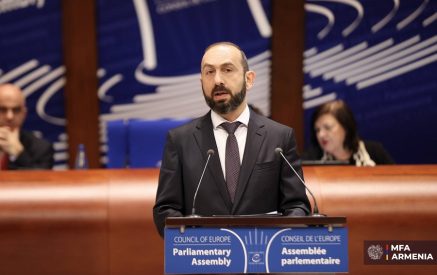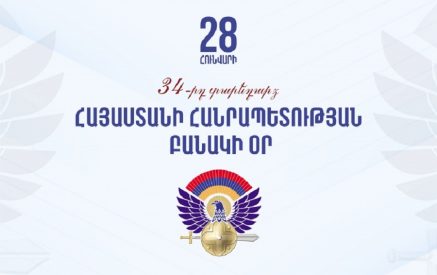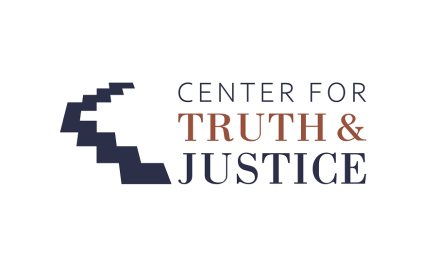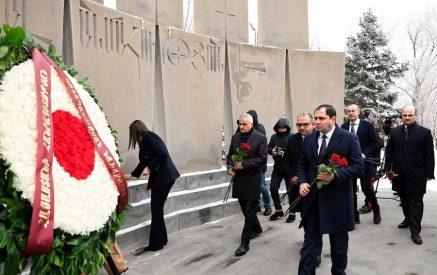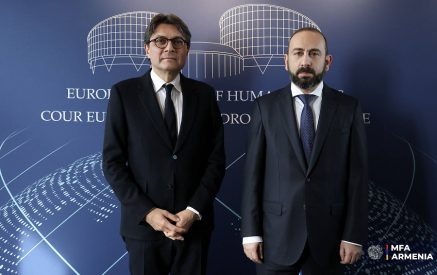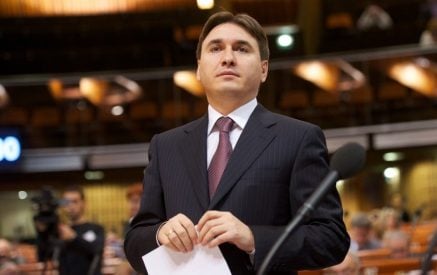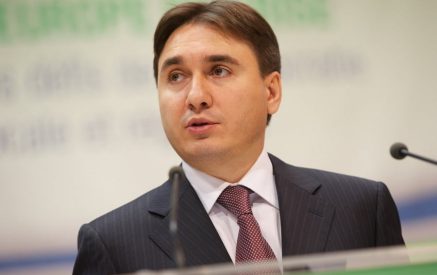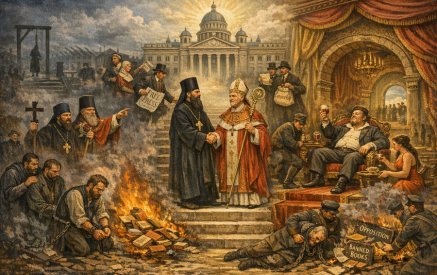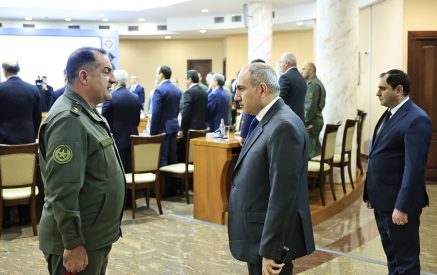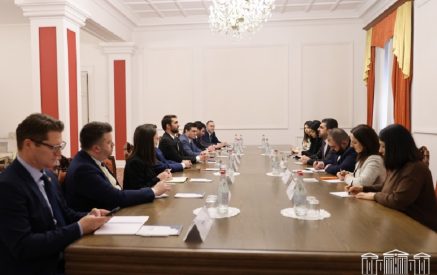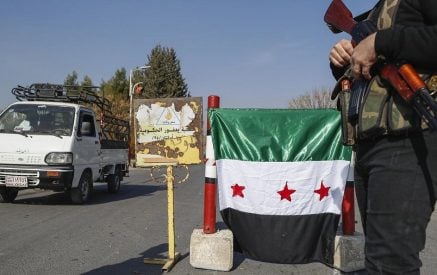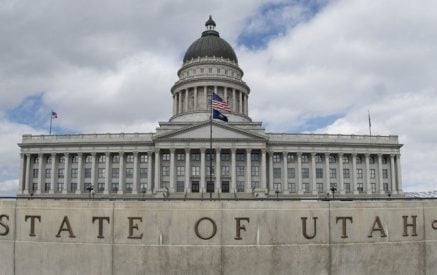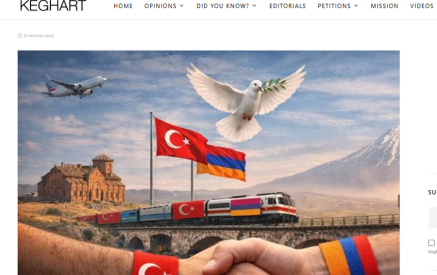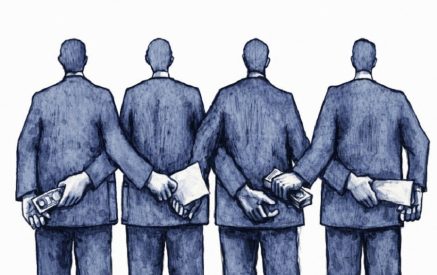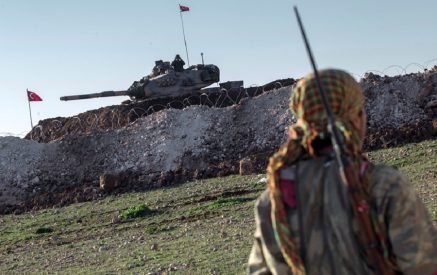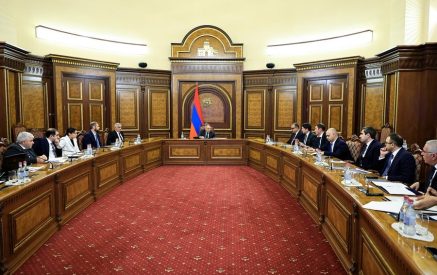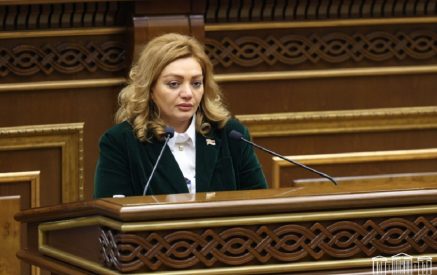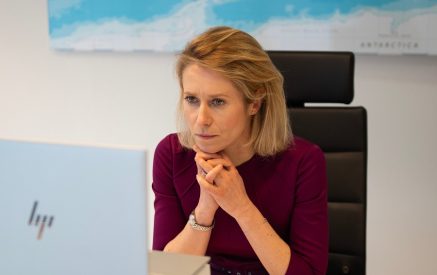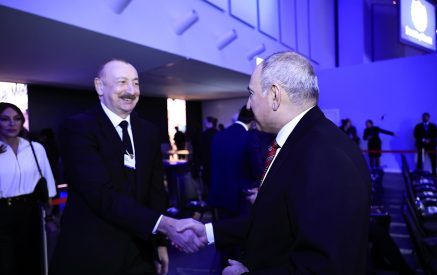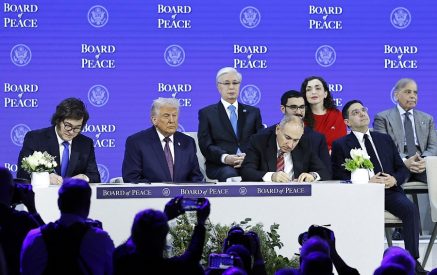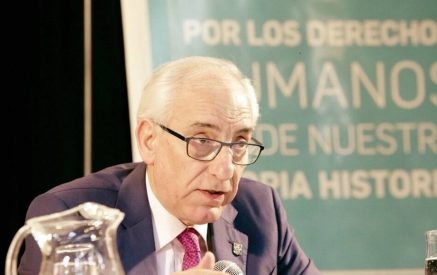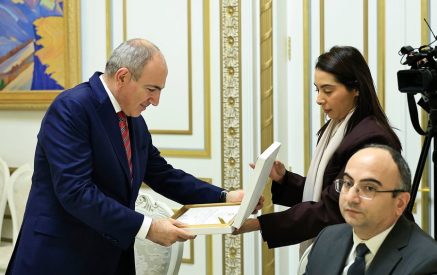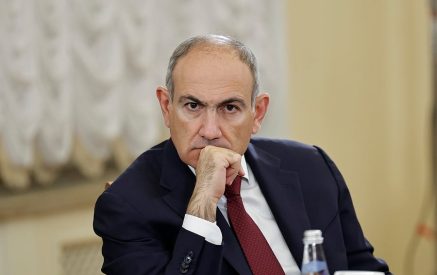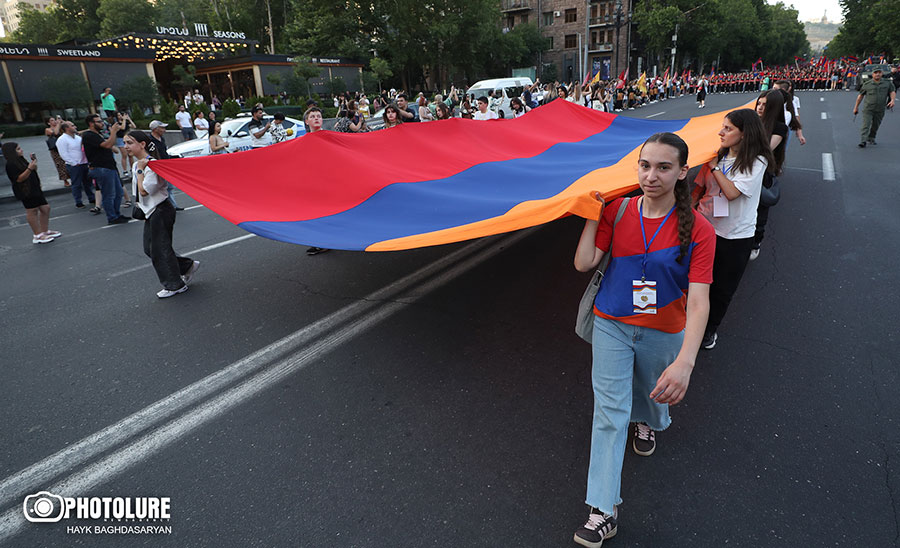by Dr. Arshavir Gundjian, C.M.
Special to the Mirror-Spectator
In the thirty-three-year history of Armenia’s recovered independence, the last days of June of the current year can be considered the end of a nearly three-year period characterized by tumultuous developments, beginning with the days of the infamous second Artsakh war of 44-days in 2020.
This article attempts a brief and objective analysis of the abovementioned period and the presentation of reasonable expectations for the coming two years, until the general elections expected in Armenia in 2026.
Read also
The 44-day war in Artsakh in 2020 with its disastrous outcome revealed that all the regimes following the reestablishment of Armenia’s independence, excluding to some extent the period of first president Levon Ter-Petrosian, are heavily responsible for that sad result. First of all, they have been careless and delinquent regarding their responsibility to provide the motherland uninterruptedly with the means for its own military defense of the highest quality. They are also responsible for being unable in the diplomatic field to realistically assess the loyalty and trustability of its so-called allied countries, in whose assistance they trusted to ensure the defense of their own homeland.
Let us now turn our attention to the three- or four-year period from 2020 to the present.
At the start of this period, during the year 2021, general elections were held under what everyone accepted as free and lawful conditions. As a result, the members of the National Assembly were elected who continue to serve in office until today.
Today’s government headed by Prime Minister Nikol Pashinyan was formed with a large majority of the Civic Contract party. As for the opposition, it was composed entirely from members belonging to the governments of the previous years. The weakness of this group until today lies in the absence of any members from any one of the large number of other political parties.
It is natural that under these conditions, during the last three years, the activity of the government headed by Pashinyan became the main focus of evaluation and in particular criticism.
In order to fairly evaluate Armenia’s foreign policy, it is necessary to take into account its extremely difficult geographic position, burdened with complicated contradictory relations in the geopolitical sense, and therefore the constant need to conduct a very delicate and difficult policy.
It is clear that to start with, Prime Minister Pashinyan and his administration lacked political experience in this area. Thus, it should have been quite natural for them to try to take advantage of the powers outside of themselves that had passed through those difficult experiences. However, they did not want to take advantage of that opportunity, and for that reason, for a good while at the beginning, they often conducted contradictory actions.
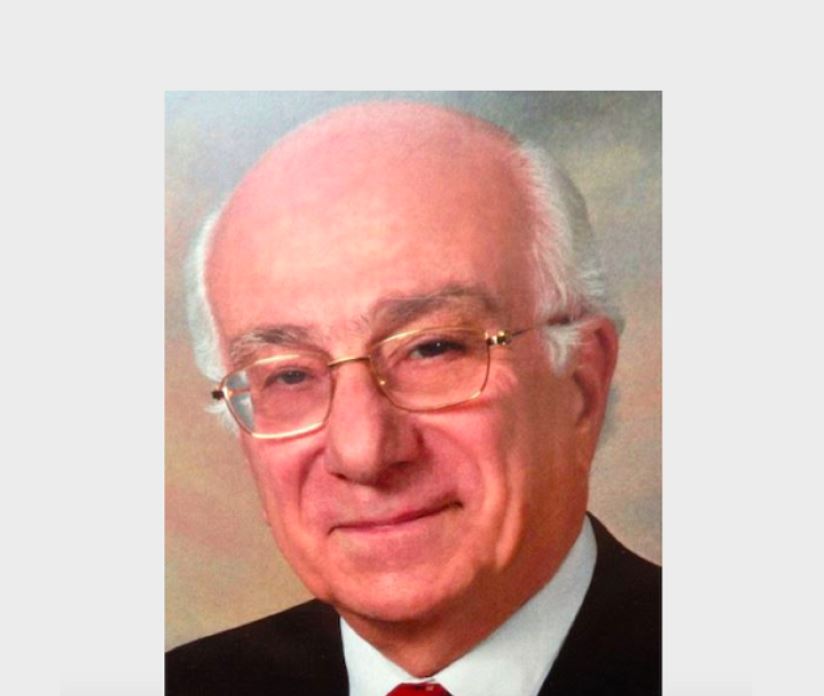
Arshavir Gundjian
It is welcome to record that by now, after passing through various difficult stages, today they are trying to establish quite promising relations with the West, while maintaining formal ties with “traditional ally” Russia. Certainly, this road remains full of very serious obstacles. However, it is necessary to pass through it to ensure the vital need for strengthening of the country’s defense and economy.
As for the internal political, economic, legal and other aspects of the country, if today’s authorities have obviously implemented significant changes and successes in a democratic sense, on the other hand, they are still responsible for important omissions.
The first of the gaps in the difficult work of giving direction to the country is the absence, as mentioned above, of capable representatives of the valuable circles that were left out and turned into small groups as a result of elections. The latter are well balanced and deep believers in democratic principles. The authorities, on their own initiative, should make room for these people and benefit from the assistance they can bring.
The second big error of the authorities is the ignominious attitude they have adopted towards the worldwide Armenian diaspora. At the expense of being repetitive, it should be mentioned that the extensive diaspora has good will and broad resources, but it is collectively disorganized. The biggest mistake was disbanding the Ministry of Diaspora and replacing it with a completely ineffective and arrogant High Commissioner of the Diaspora.
Now, let’s continue this brief analytical examination by evaluating the activity of the two opposition factions of the National Assembly, and the role played by the protest street movements that fill the streets and squares from time to time with their encouragement.
The opposition members of the National Assembly, from the very first day of their election until today, prove every day that they, according to the accepted standards of the civilized world, simply do not deserve to bear the name “oppositionist.” The derogatory language they used, and their behavior of starting fights by throwing bottles, being deeply shameful and destructive, has simply reduced their prestige and effectiveness to nothing.
As for the street movements, from time to time, but particularly after the 44-day war until now, over the course of nearly three years, these demagogic protest movements, of which the so-called “Tavush for the Motherland” movement was the last, filled the streets and squares. They are characterized by a fairly large number of participants.
It is natural and expected that in Armenia, as in any civilized and especially democratic country on the face of the earth, necessarily, a part of the people will be dissatisfied with the work of the current authorities. The contrary would be unnatural. This is certainly the case in Canada, the United States, France, Spain, and many, many other developed countries. It is also understandable and expected that the dissatisfaction with specific and clearly defined issues could be widespread and strong enough for a large number of citizens to go down to the streets and demonstrate, as provided for by law, under the supervision of the police. However, at no time will it be expected that the government will resign as the result of those demonstrations and simply offer that the group organizing those demonstrations take its place.
The one and only way to change governments is through elections. In times of extreme crises, extraordinary anticipated general elections are held. Otherwise, one must wait until the next scheduled regular elections, so that a change of power is carried out with the vote of the majority of the people. Period.
Otherwise, when street movements become uncontrollable and lead to physical harm or atrocities, then first of all the police, and when necessary, even the armed forces of the country must intervene, and the perpetrators will receive appropriate punishments.
When we evaluate the three street movements that have taken place in Armenia with the participation of large numbers since 2020, with this simple understanding, it should be noted that all three failed and remained fruitless. The first and the last also went beyond the legally accepted limits. The last one, the Tavush Movement, whether through planned or unplanned conditions, finally crossed the red line of the use of brute force when it unsuccessfully tried to storm into the National Assembly.
We will focus more on the Tavush Movement because it is still fresh in everyone’s mind.
Actually, from the very beginning of the Tavush’s Movement, it was obviously destined to end in failure, starting from the day of the great gathering at the Republic Square on May 9.
What happened is that completely independently from one other, various groups joined the movement on the Tavush-Yerevan road, initially thinking that the messiah who would save Armenia had suddenly appeared. In the same manner, however, they gradually left when it became apparent that it did not have a planned political program that was thought out in the slightest. It also did not have a leadership that was politically prepared in the least, that inspired confidence, and openly and courageously acted. On the contrary, the only aspirant to leadership unexpectedly was a clergyman of the Armenian Apostolic Church of Armenia, who also soon became the candidate for prime minister proposed by the movement. Under these conditions, seeing the lack of political seriousness of the movement, its most important initial followers left in the first days, and in the end, only university students, schoolchildren and a few well-known sworn opponents of the government remained. It appears that by now even these last ones have dispersed and the “candidate prime minister” himself has also left the streets, with the absurd promise of returning to the streets in the fall after the summer “vacation.”
Certainly and expectedly, the disappointment will be great among all those well meaning citizens and media groups who, for a short period of time, believed that they had suddenly found an extraordinary savior, who had remained unknown until then. But they all are at fault, being so easily carried away by the charm of this “savior,” whose activity was previously unknown to them. Indeed, everyone became aware that this clergyman had served as the Primate of the Diocese of Canada for ten long years. It was their duty to send a small but serious investigative delegation to Canada to gather objective information about this individual’s track record, who lays claim to such an important position. The result of such an investigation would show that at the end of those ten years, the Armenian Diocese of Canada had reached, at the very least, a very seriously troubled state, both concerning finances and human relations, after which it has barely regained its former peace by today.
Although the Tavush Movement is no longer a hope or a threat to the future of the homeland, it is unfortunately much more worrisome that this failed initiative of several months had a serious negative impact on the entire image of the Armenian Apostolic Church and especially on the Holiest of Holies, the Mother See, and its irreplaceable role of being the symbol of national moral unity.
The course of history is long, and with a relatively short duration, this incident will surely soon be forgotten and lost in the past.
On the other hand, however, we must make every effort as a nation so that the Mother See and its leader, the Catholicos of All Armenians, recover the highest moral position as a moral unifier, which they have enjoyed for more than a millennia and a half with the Armenian people and in the context of Armenian statehood. By the way, this is also an opportune occasion for the See of Antilias, which this time, with rare and welcome ardor in this troubled period, was so concerned to be the protector of the Mother See and the holder of the latter, to further act responsibly. Indeed, it ought to act without delay to correct the state of division which it created over seventy years ago, which now extends from Iran to Greece, and to the United States and Canada.
This brief analytical overview of the passing period to a certain degree indicates that today, following the end of the month of June, 2024, we as a nation are on the verge of a truly important turning point.
In the following months, and especially until the next general elections in 2026 – in other words, during the next two years, the Armenian authorities will have to maneuver and cope with very delicate and difficult political conditions. In the current unstable and stormy world geopolitical conditions, this duty assigned to them is certainly an unenviable one.
In this connection, we repeat and reaffirm the expectation which we have expressed many times and wish that Prime Minister Pashinyan and his regime will take advantage of all the political forces outside their own circles which are ready to provide them with positive support, while they themselves carry out this difficult work.
It is indeed indisputable that a ship traveling on such a long and difficult road can have only one captain at any one period of time.
The current authorities must also, without delay, reestablished organic, serious ties with the diaspora around the world. It must reestablish the Ministry of Diaspora under the supervision of an experienced minister. The diaspora is the greatest wealth of the homeland, provided that our authorities are able to master the subtleties of putting it to work.
The authorities of Armenia have much important work to do, especially to instill more trust in the people of their country. As much as we disdain the style and practices of the so-called “street protest movements,” it is obvious that there are serious reasons for dissatisfaction among the people. The government cannot ignore that reality. It is its responsibility to do what is necessary to alleviate the causes of these dissatisfactions. One of the means is to explain to the people, to the greatest extent possible, the profound reasons behind the unpopular positions adopted by it. The authorities should also realize that there are red lines that no regime is allowed to cross. As indisputable examples, Ararat is Armenian and that’s that. Artsakh is Armenian and that’s that as well, but in this regard, it is understandably a difficult task to provide the diplomatic, legal, military and all other means through which, sooner or later – even if it now risks to be much later – that dream can be successfully realized. It is unnecessary to extend this list. We are all aware of its content.
As we have noted earlier, although the current regime in its first days had a great lack of experience, today it is obvious that it is already coping well enough with the dangerous and boobytrapped games of the international political circus.
Undoubtedly, the great majority of the Armenian people is always ready to stand strong with the authorities which stand at the head of the country through legal elections, while expecting the latter to always show respect to the people’s reasonable expectations.
Good luck and success to the homeland and the Armenian people.
(This article is a translation from the Armenian version first published in Baikar and Abaka.)


